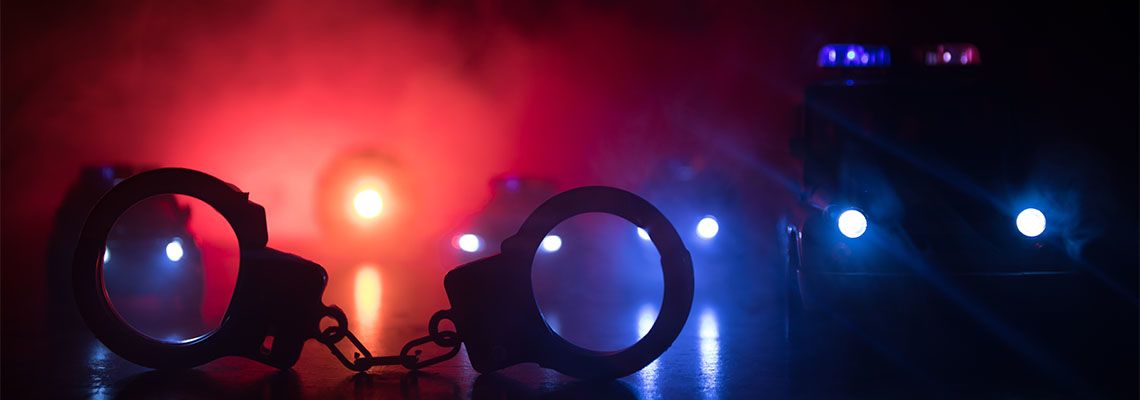
FAQ: Criminal Defense
After a criminal charge, it is perfectly normal to have several questions going through your head. You want to know it all: your rights, your options, and the potential consequences. However, many people are too afraid to ask questions. As a criminal defense attorney at Greg Nelson Attorney at Law, I understand the stress and confusion you may be experiencing after being arrested or being accused of a crime.
No matter what charges you face, you deserve to get answers to your questions to figure out the right path for your defense. You can reach out to my office in Omaha, Nebraska, to get experienced guidance you can trust. I serve people accused of crimes throughout the state of Nebraska, including Washington, Sarpy, Dodge, and Saunders counties.
Frequently Asked Questions About Criminal Defense
When facing criminal charges, it is imperative that you understand the various aspects of your case. Below, you can find answers to some of the most frequently asked questions about criminal defense. However, if you did not find your question, you can schedule a confidential, one-on-one consultation with me.
“Do I have to talk to the police after the arrest?”
No. There are no federal or state laws that would require you – or any other person arrested for a crime – to speak to the police. The only exception is if you are asked by the police to identify yourself. In fact, talking to the police and saying self-incriminating things could end up hurting your case in the long run.
“What is the difference between a felony and a misdemeanor?”
Generally speaking, misdemeanors are less serious criminal offenses than felonies. In Nebraska, any crime that carries a punishment of more than a year in prison is considered a felony. The state divides felonies into levels and classes based on their severity.
“Do I still need a lawyer if I’m innocent?”
Unfortunately, it is not uncommon for innocent people to be accused of crimes. Moreover, innocent people may even end up getting a conviction simply because their arguments were not convincing enough in court to prove their innocence. With a lawyer on your side, you can significantly increase your chance of proving your innocence to ensure that you are not falsely convicted of a crime you did not commit.
“The police did not read me my rights. Will I still be arrested?”
Contrary to popular belief, the police are not required to read Miranda rights whenever someone gets arrested. Instead, the law requires law enforcement to read Miranda rights when a person is in custody and they are about to interrogate the person to use their statements as evidence in the criminal case.
“What happens if I’m charged with a crime in Nebraska but live in another state?”
When you are charged with a crime and arrested in one state but live in another, you might still be prosecuted in the state where the arrest has taken place. When this happens, the laws of the state where you were arrested will apply, not the laws of your home state. In fact, you can even face criminal charges in one state for doing something that is legal in your home state. It makes sense to find a local criminal defense attorney familiar with the laws and procedures of the state where your arrest occurred.
“How long do criminal cases typically last?”
A wide range of factors come into play when trying to estimate the timeline of your criminal case. How long the criminal case will take depends on the jurisdiction where you face criminal charges, the complexity of your case, and many other factors. An experienced attorney may be able to estimate how long the criminal case will last after evaluating the unique facts of your case.
“Is it possible to clear a criminal charge from my record?”
In some cases, people may be eligible to have their criminal record sealed or expunged. However, there are many requirements that must be met to clear a criminal charge from your record. These requirements vary from one state to another, which is why you may need to consult with a criminal defense attorney in your state to determine your eligibility for expunging or sealing your record.
“Do I really need a criminal defense lawyer?”
When your freedom and future are on the line, you do not want to take chances. Hiring a criminal defense lawyer could be the most important decision you make after your arrest. A lawyer will be by your side to help you navigate through the criminal justice process and fight to achieve the most favorable outcome possible.
Facing Charges? Secure Your Best Defense.
At Greg Nelson Attorney at Law, I understand what you are going through when facing criminal charges. It is vital to determine what happens next and what you should do to protect your rights and avoid harsh penalties. Everyone’s situation is unique, which is why you need to schedule a confidential consultation to get your questions answered. Reach out to my office in Omaha, Nebraska, and we can discuss your options.
